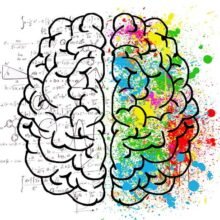How Rest Deprivation Impacts Your Brain and Mind
In this article, we delve into the critical issue of Rest Deprivation and its profound impact on the human brain and mind. We, as human beings, need rest to function optimally, and the lack thereof can have severe consequences on our mental and cognitive abilities. In this comprehensive guide, we delve into the critical issue of how rest deprivation impacts the human brain and mind. Rest is often underestimated, yet it plays a vital role in maintaining overall well-being. Why Rest is Crucial for Your Brain and Mind.

The Brain’s Fascinating Workings during Rest
When we rest, our brains remain highly active, engaging in crucial functions. One such process is the formation of new neural connections, which are vital for learning, memory retention, and cognitive development. Moreover, rest allows the brain to flush out accumulated toxins, promoting brain health and longevity.
The Impact of Rest Deprivation on the Brain
Unfortunately, rest deprivation has become a widespread problem in our fast-paced modern society. Prolonged periods of inadequate rest can lead to several negative consequences for the brain. Studies have shown that sleep-deprived individuals experience reduced cognitive performance, impaired decision-making abilities, and diminished creativity. Additionally, lack of rest can make it challenging to concentrate, leading to decreased productivity and an increased likelihood of accidents.
Rest Deprivation and Its Effects on Mental Health
Rest deprivation not only impairs cognitive abilities but also significantly affects mental health. Chronic sleep loss has been linked to an increased risk of anxiety disorders, depression, and other mood-related conditions. Emotional regulation processes in the brain rely heavily on rest, and when deprived of it, individuals may find themselves more prone to stress and emotional instability.
The Role of Dreams in Rest
Dreams are an intriguing aspect of rest that has long fascinated scientists and researchers. Occurring during the Rapid Eye Movement (REM) stage of sleep, dreams play a crucial role in emotional processing and memory consolidation. Depriving oneself of adequate rest not only hampers REM sleep but also deprives the mind of the opportunity to explore the unconscious and process emotions.
Tips for Improving Sleep Quality
To combat rest deprivation and its detrimental effects, it’s essential to focus on improving sleep quality. Here are some practical tips to achieve a healthier brain and mind:
1. Establish a Consistent Sleep Schedule
Creating a regular sleep schedule can help regulate the body’s internal clock, enhancing sleep quality over time. Aim to go to bed and wake up at the same time every day, even on weekends.
2. Create a Relaxing Bedtime Routine
Engaging in calming activities before bedtime signals the body that it’s time to wind down and prepare for rest. Consider activities like reading, meditating, or taking a warm bath to relax the mind and body.
3. Optimize Your Sleep Environment
A conducive sleep environment is essential for quality rest. Keep your sleeping area cool, dark, and free from noise disruptions to promote uninterrupted sleep.
4. Limit Screen Time Before Bed
Electronic devices emit blue light, which can interfere with the production of the sleep hormone melatonin. Limit screen time at least an hour before bedtime to allow your body to naturally prepare for rest.
5. Watch Your Diet
What you eat and drink can significantly impact your sleep. Avoid heavy meals, caffeine, and alcohol close to bedtime, as these can disrupt sleep patterns and cause restlessness.
6. Incorporate Physical Activity
Regular exercise can improve sleep quality by reducing stress and promoting relaxation. However, avoid vigorous workouts close to bedtime, as they may lead to heightened alertness.
7. Manage Stress
Stress and anxiety can make it challenging to fall asleep and stay asleep. Consider adopting relaxation techniques or mindfulness practices to manage stress levels before bedtime.
Conclusion
In conclusion, rest deprivation has a far-reaching impact on the brain and mind. Understanding the significance of quality rest is essential for leading a fulfilling and productive life. By prioritizing rest, adopting healthy sleep habits, and managing stress, you can enhance your cognitive abilities, emotional well-being, and overall quality of life.
Remember, rest is not a luxury; it is a necessity for your brain and mind to function optimally. Take proactive steps to ensure you get the rest you need and deserve.







